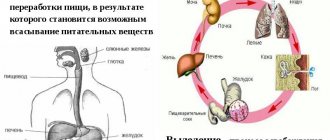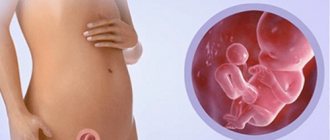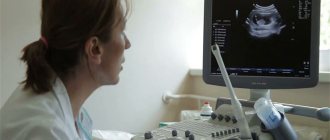Could heartburn be a sign of pregnancy?
Heartburn is one of the symptoms of digestive disorders. It manifests itself as a burning sensation in the chest area of varying degrees of intensity. Most often, heartburn signals the presence of one of the following diseases in the body:
- gastritis;
- stomach or duodenal ulcer;
- gastroesophageal reflux disease;
- achalasia cardia;
- hiatal hernia;
- dyspepsia;
- duodenitis;
- colitis.
Symptoms of heartburn are well known to lovers of rich holiday feasts, as well as hearty late dinners.
Heartburn can only be considered secondary as an early sign of pregnancy. In the first two weeks after fertilization, when the expectant mother is usually still unaware of the changes taking place in her body, heartburn can make itself felt due to sudden hormonal changes. However, this may not be earlier than on the seventh day after fertilization - this is exactly how long it takes for a fertilized egg to make its way from the ovary to the uterus and gain a foothold in it. From this moment, conception is considered successful, and the pregnancy begins its countdown.
Prevention
Having made sure of their future motherhood, pregnant women worry whether it happens that heartburn accompanies all the months of bearing a baby. Of course, such unpleasant sensations will bother them from time to time.
In order for such a reason for frustration to appear as rarely as possible, it is necessary to take preventive steps:
- be more attentive to the signals of your digestive system - if some product causes unpleasant sensations more often, it is better to refuse it;
- do not bend sharply - if you need to lift something, it is better to sit down;
- at night, rest, and not mentally go through the events of the day - such “reflections” only increase the activity of the gastrointestinal tract and provoke heartburn;
- do not overeat at night;
- During the day, give preference to light snacks and move more.
The main recommendation for expectant mothers is to perceive their pregnancy as the main gift of fate, to rejoice at all the changes occurring in the body, even the appearance of heartburn. After all, this is how the baby lets you know that everything is fine with him, he is growing and developing, and will soon be born.
Characteristic symptoms
How to distinguish heartburn from other painful and unpleasant sensations in the chest area? This is not always easy, especially for a person who is in good health and has not previously encountered this phenomenon. The main difference between heartburn and pinched nerves, pain in the spine, and heart pain is the time of its occurrence. Heartburn appears mainly after eating, immediately or after 20-30 minutes. When trying to lie down or at least lean back, the symptom intensifies, since the horizontal position of the body makes it easier for gastric contents to enter the esophagus.
With a high degree of probability, heartburn is accompanied by other manifestations of indigestion - belching, regurgitation of food, a feeling of fullness in the stomach, pain in the epigastric region, an unpleasant sour taste in the mouth. If the symptoms are intensified by nausea and/or vomiting, then this definitively confirms that the woman has problems with the gastrointestinal tract.
How to alleviate the condition using traditional medicine
The most well-known product for reducing heartburn is milk. It has an enveloping and softening effect on the digestive system. The composition of milk neutralizes stomach acid, thereby relieving discomfort and burning. The glass should be drunk in small sips. The heartburn will go away in a few minutes.
Fermented milk products will help reduce discomfort. However, it is not as effective as milk.
A popular treatment is a weak soda solution. By reacting with acid, the walls of the stomach can stretch and retain fluid. If soda enters the body of a pregnant woman in large quantities, it can harm the baby, affecting its development and growth.
Jelly has an enveloping property. Prepared from natural products, it will not only relieve discomfort, but also enrich the body with vitamins.
Fresh potatoes have medicinal properties. To make juice you will need 1 potato. Grate it, remove the pulp with gauze and drink 1-2 tbsp. spoons before meals.
Nuts, dried apricots, cereals, durum pasta, buckwheat and rice prevent the increase in acidity. Oatmeal broth or porridge for breakfast will have a beneficial effect on the mucous membrane, reducing burning and irritation.
Dill, parsley and carrots reduce the symptoms of heartburn. Carrots can be grated, and greens can simply be washed and eaten or added to a salad. Fresh green vegetables also have a beneficial effect on the stomach. You can make a decoction from dill.
Herbs that help relieve discomfort:
- calamus root;
- mint;
- yarrow.
However, you should remember that you should not get carried away with decoctions. Too strong an infusion of mint, for example, can provoke uterine tone. Therefore, any type of therapy should first be discussed with your doctor.
Why does burning occur at the beginning of pregnancy?
From the first day of conception, the production of progesterone in a woman’s body increases several times. This is a steroid hormone produced by the ovaries, which is directly responsible for the healthy and natural bearing of the baby. With the growth and development of the fetus, the need for progesterone increases with arithmetic progression, the ovaries can no longer cope with such a load, therefore, from the 16th week of pregnancy, the placenta is connected to the production of the vital hormone.
Among other functions of the hormone, its ability to relax smooth muscles is of great importance. This is important because the uterus, in which the egg is implanted, consists primarily of very dense muscle tissue. Contracting under the influence of various unfavorable factors, it is able to push out its contents. This is how miscarriage occurs in the early stages, and premature birth in later stages. Progesterone has a relaxing effect on the muscles of the uterus, helps it painlessly stretch as the fetus grows, and prevents miscarriage.
Having an irreplaceable positive effect on the function of procreation, the production of progesterone in large quantities at the same time threatens with side effects that affect the body of a pregnant woman, since it relaxes the muscles not only of the uterus, but also of other parts of the body.
Smooth muscle organs include the following organs and body systems:
- larynx;
- esophagus;
- stomach;
- intestines;
- gallbladder;
- heart;
- circulatory system;
- bladder;
- sphincters.
Relaxing under the influence of progesterone, the organs of the digestive system begin to cope with their functions worse. Therefore, from the very beginning of pregnancy, a woman may begin to experience problems such as difficulty swallowing food, its slower digestion and movement further into the intestines, belching, and, as a result of all of the above, heartburn.
Food that stays in the stomach longer than the average time increases the acidity of gastric juice - in this way the organ tries to speed up the process of digestion. Weakened muscles of the sphincters and the esophageal opening of the diaphragm are less able to retain the contents of the stomach in its cavity. Under the influence of intra-abdominal pressure, undigested food particles along with acids enter the esophagus, irritating its mucous membrane. As a result of this dysfunction, heartburn occurs - a burning sensation in the chest cavity, in the area between the larynx and stomach. Therefore, heartburn may well be considered as one of the indirect signs of pregnancy, but only in conjunction with other symptoms.
Important! If a pregnant woman has a previously identified gastroenterological disease, the likelihood that heartburn indicates conception has taken place is significantly reduced.
It can be considered as a symptom of pregnancy only if the woman has not previously encountered a burning sensation in the chest or has encountered it extremely rarely.
How can you independently determine that conception has occurred?
A test will help determine pregnancy
After ovulation, if conception has occurred, the first signs, sensation, possibly in the form of an increase in body temperature. It is completely insignificant, but the female body is very sensitive. When an egg is fertilized, a change in hormonal levels occurs, which pushes the body to increase body temperature after conception.
To independently determine when pregnancy has occurred, a woman should measure her basal body temperature for several days. If, after ovulation occurs, the basal temperature is elevated, this means that pregnancy has occurred. If conception occurs and the basal temperature is not increased, then there is a high probability of miscarriage due to the low production of the necessary hormone in the woman’s body.
When an egg is fertilized, the first changes in the body are an increase in the level of the hormone gonadotropin. What are the signs of its increase? There are no obvious signs, but by checking its level in a woman’s body using a test, a blood test, you can establish the date of conception, a woman can do this on her own.[ads-pc-2]
You may be interested in: How long after conception does pregnancy occur?
Signs of pregnancy in the first trimester: what besides heartburn?
In addition to heartburn, other signs may indirectly indicate pregnancy:
- Constipation. The same progesterone is to blame for their appearance - by relaxing the intestinal muscles, it disrupts the natural process of bowel movement.
- Veins and vessels appearing under the skin are the result of an increasing blood volume.
- Due to increased blood flow, a pregnant woman may also experience tachycardia - at first the heart is not always able to adapt to the increased load.
- Hormonal changes play a cruel joke not only on digestion, but also on a woman’s mood and her ability to work . In the first weeks of the first trimester, she most acutely experiences sudden mood swings (from elated to apathetic), a feeling of confusion, apathy, and fatigue.
- Increasing waist size. This symptom is typical only for very slender women, whose volume begins to change from the very beginning of pregnancy. Visually, this is often imperceptible, but when measuring the waist with a centimeter tape, an increase of 1-1.5 cm may be noted. This is due to the reaction of the uterus to the fertilized egg implanted in it.
- Painful sensations in the chest, increased sensitivity of the nipples. Hormones whose levels increase noticeably during pregnancy also include prolactin. He is responsible for preparing the breasts for feeding and subsequent lactation. It is prolactin that is responsible for hypersensitivity of the mammary glands until childbirth.
- Nagging pain in the lower abdomen, in the lower back. Most often they talk about stretching of the uterus, but sometimes they signal an existing threat of early miscarriage.
- Headaches, which are also caused by changes in hormone production. Often, a headache during pregnancy develops into a migraine - in this case, the unpleasant sensations are localized in the right or left half of the head.
Attention! If a woman has every reason to suspect that she is pregnant, and at the same time she is suffering from frequent headaches, she is recommended to consult a gynecologist as soon as possible.
Firstly, pain in the head can be a formidable harbinger of a miscarriage, and secondly, the expectant mother faces the serious problem of choosing a medicine for migraines - not every antispasmodic is approved for use during this delicate period.
Action tactics
Having received an affirmative answer from the obstetrician that heartburn may be a sign of pregnancy - the results of the examination and ultrasound convincingly indicate this, the woman should reconsider her lifestyle.
Many medications that could make you feel better before pregnancy, at the time of intrauterine fetal formation, will be contraindicated. You will have to deal with unpleasant sensations in other ways.
- diet correction - avoiding heartburn during pregnancy will help to avoid foods such as tomatoes, peppers, sauces, spices, preservatives, fatty, fried, heavy foods;
- It is recommended to eat fractionally – every 2.5–3 hours, but in small portions;
- Chew each piece of food thoroughly, take your time, and avoid excessive swallowing of air;
- do not wear clothes that tighten the waist - belts, corsets, belts;
- give up bad habits - strong coffee in the morning, carbonated drinks, smoking, drinking alcoholic beverages;
- adjust your work activity - rest more, spend more time in the fresh air.
If it is not possible to combat heartburn, as the first sign of pregnancy, using the above methods, a specialist may recommend pharmaceuticals - but extremely carefully, and in rare cases.
Heartburn in early pregnancy: what to do?
A burning sensation in the chest is quite painful even in normal conditions, but during pregnancy it serves as an additional stress factor. Heartburn forces the expectant mother to impose food restrictions, prevents her from eating properly, which deprives her and the unborn child of the necessary amount of nutrients, vitamins, minerals and other important components.
The main method of normalizing digestive function is a competent diet, which primarily implies the correct distribution of the daily volume of foods. A pregnant woman's entire diet should be divided into 5-6 meals, the bulk of which should be eaten by her before 19:00. In order not to go to bed hungry, shortly before bedtime she can eat 100-150 g of low-fat cottage cheese, drink a glass of kefir or yogurt. Fermented milk products overnight will help improve the microflora of the stomach and intestines, reducing the likelihood of heartburn.
Table. Dietary recommendations for a pregnant woman
| Recommended for daily use | It is recommended to limit (not eat every day) | It is recommended to exclude from the diet |
| Meat (beef, chicken and turkey breast, rabbit) | Legumes (chickpeas, beans, lentils, peas) | Canned food |
| Fish (preferably sea fish, but not red) | Mushrooms | Mayonnaise, ketchup |
| Eggs | Pastries, sweets | Roast |
| Leafy greens | Sour vegetables, fruits, berries | Hot spices, seasonings |
| Roots | ||
| Non-acidic fruits, vegetables, berries | ||
| Nuts, seeds, dried fruits | ||
| Dairy products |
To get rid of an attack of heartburn, it is better for the expectant mother not to resort to medications. A glass of milk, a decoction of dill seeds (chamomile, alder), boiled potatoes or their decoction, mineral water with an alkaline reaction, and sunflower seeds will help her ease her condition.
Note! If it is not possible to relieve an attack without medication, drugs such as Rennie, Smecta, Almagel, Phosphalugel, Maalox can come to the rescue. But it should be remembered that there are no completely safe medications for a baby.
Therefore, before using them, it is extremely important to obtain the approval of the gynecologist leading the pregnancy. You should also approach gastric herbal preparations with caution - although they seem natural and harmless, they can cause an allergic reaction.
Causes of appearance during menstruation
Many women note that heartburn occurs more often during menstruation and on the eve than on other days. This is due to many factors. Firstly, the peak of estrogen passes, the concentration of gestagens increases. And they to some extent contribute to the relaxation of smooth muscles. So it turns out that if a girl has minor problems, in the second phase they can manifest themselves clinically or intensify if they existed before.
Also important is the fact that on the eve of menstruation, due to the hormonal changes that occur, the nervous system of girls is more labile. And hence they are more susceptible to stress.
Constant tension leads both directly to disruption of the digestive system and to “seizing” problems. Excessive consumption of chocolate, coffee, smoking or alcohol also contribute to heartburn.
It should also be accepted that many women use various medications before and during menstruation to relieve pain (antispasmodics, NSAIDs, and others). And most of them affect the mucous membrane of the stomach and esophagus. Heartburn, as a symptom, may not appear immediately, but after some time of regular use of medications, usually after 4 to 5 months. But if the dose is high or the duration of use is long, then earlier.











